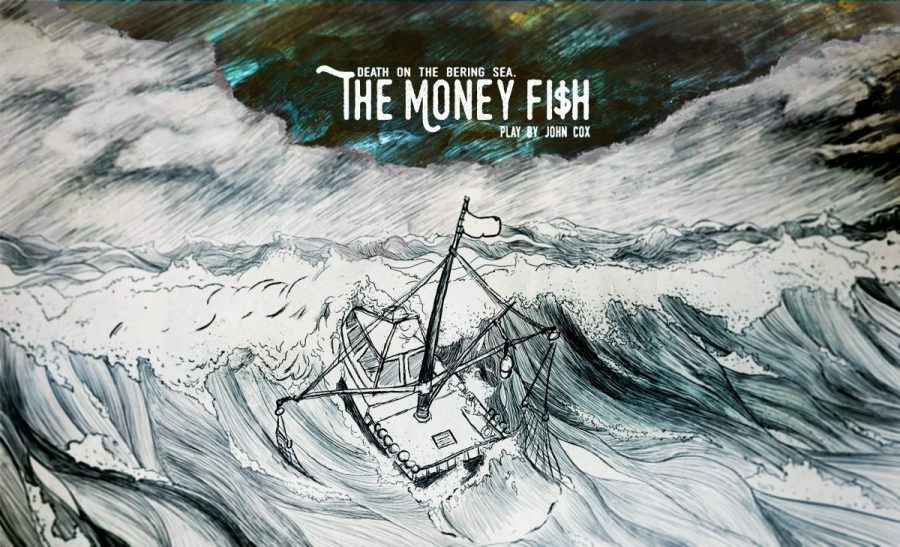No-one needs telling life at sea is hard, but this autobiographical piece by Michigan-born John Cox brings it home in riveting fashion. Cox worked as a commercial fisherman in the icy brutality of the Bering Sea, and this work reeks of sweat, salt, blood, fish guts and testosterone. “My world shrunk to a ten foot square,” says a greenhorn Cox as he sorts fish after filthy fish into boxes, to the sound of waves crashing. In the box-like warehouse of Paradise in the Vault, the air takes on a damp chill. He’s drawn us into that shrunken world.
It’s a world populated by bitter, prickly or plain nasty characters – hard-cussing, hard-living loners, deadbeats in search of a buck, screwed-up seadogs who’ve forgotten any other life. Characters called names like “Boots” or “Junior”. Japanese crew bosses, Eskimo deck men, African American hired hands. Cox plays them all – sweating, swearing and slogging their way through life at sea, and then screwing, drinking and drugging their way through the off-season.
You’re reminded of some of the classic depictions of American masculinity – Raging Bull or On The Waterfront. There’s a lot of men on this ship that don’t know how to express themselves, except through aggression and hard graft, and no wonder. The depravations and dangers of the life and the distance it puts between a man and those back on dry land are made vividly clear. Steeliness and impregnability are the only things that will get you through a year in the Arctic extremes, and Cox shows how this manifests itself in each and every man.
Structurally and dramatically, it doesn’t rip up any rulebooks, but it is one of those heart and soul things; you can see how much Cox is committed to the piece and that commitment pays big dividends. An onboard accident is not milked for its full dramatic impact, but equally, in the context of the piece, the matter-of-factness is perhaps appropriate.
It would be genuinely disappointing to learn too much more of Cox’s journey from fisherman to actor. Better to believe he’s just walked off the trawler in his galoshes to tell us this tale. This is one of those one-off Fringe pieces that has thrived as a labour of love by its creator and arrived here fully formed. It is narrow in scope and appeal, perhaps, but it is very, very good on its own terms.
